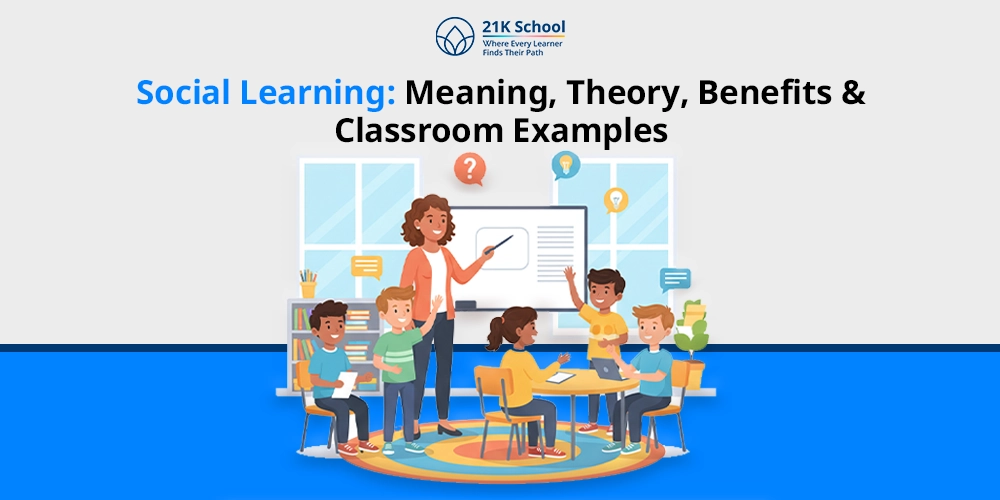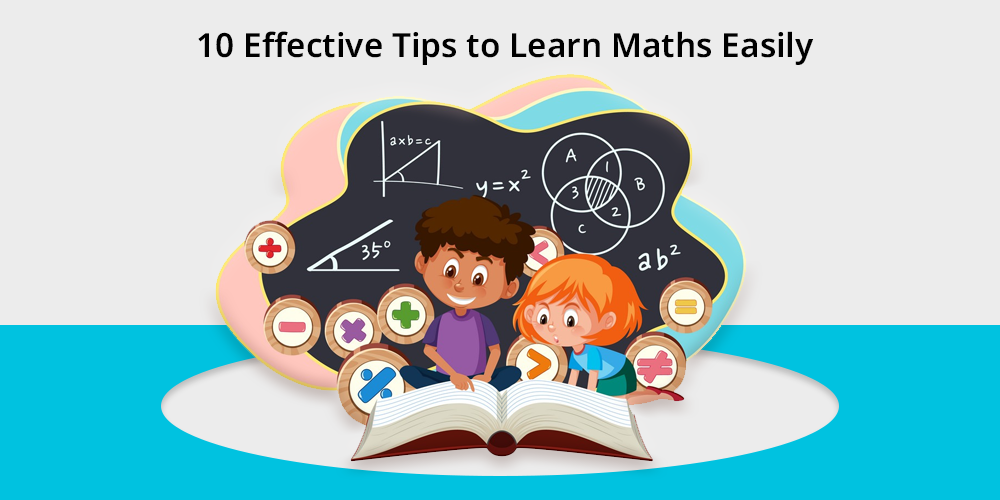
What’s the one subject that seemed to bring a scary monster image to you?
Many will say, Maths!
Maths is like any other subject, but many students find it difficult to understand. But it doesn’t have to be that way.
In this blog, we will discuss why math is important in everyday life , the best time to study, and 10 useful tips to help you become a math genius!
Contents
- 1 Importance of Learning Maths in Daily Life
- 2 Which is the Best Time to Study Maths?
- 3 10 Tips and Tricks on How to Learn Maths Easily
- 3.1 1. Understand the Concepts
- 3.2 2. Practice Regularly
- 3.3 3. Break Problems Into Steps
- 3.4 4. Learn From Mistakes
- 3.5 5. Use Real-Life Examples
- 3.6 6. Master the Basics First
- 3.7 7. Use Visual Aids and Tools
- 3.8 8. Ask Questions When Stuck
- 3.9 9. Make Math Fun with Games
- 3.10 10. Stay Positive and Consistent
- 4 Final Words
Importance of Learning Maths in Daily Life
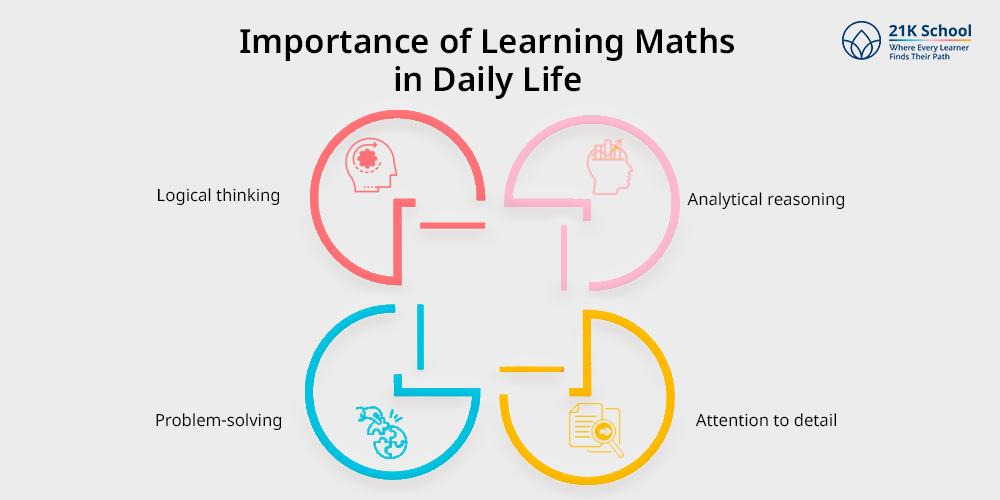
Maths is everywhere. From the time we wake up to the time we go to bed, we all use maths without even realising it.
For example, when you determine what time you need to leave the house to get to school or work on time, that involves basic math.
Managing your money, organising a meal, comparing prices for different products, or measuring ingredients when cooking, all involve basic math.
And even with those activities, those are still only the basic tasks of your day-to-day life. Maths helps us develop valuable life skills like:
- Logical thinking helps in following a clear, step-by-step process to solve problems. It allows you to understand how one mathematical step leads to the next in a logical sequence.
- Analytical reasoning helps you break complex problems into simpler parts to understand patterns and relationships. This skill is crucial when solving equations or interpreting data and graphs.
- Problem-solving involves identifying what’s being asked and figuring out the best strategy for finding the answer. It encourages creative thinking and persistence when facing unfamiliar or challenging questions.
- Attention to detail is essential to avoid small mistakes that can lead to incorrect answers. Whether it’s copying numbers, using formulas, or calculating, accuracy is key to success.
It plays an important role in many professions as well. Engineers, data analysts, scientists, architects, financial planners, and software developers all use math as an integral component of their work.
Maths is a fundamental subject that expands your ability to think rationally and to solve problems with efficiency and accuracy.
Which is the Best Time to Study Maths?

Learning maths requires focus, patience, and a clear mind. Therefore, identifying the time of day when you are at full mental capacity is key to increasing your ability to understand a concept or solve a problem efficiently.
Some things to consider are:
- Morning sessions are best because your brain is well-rested and able to focus. If you are a morning person, studying math around 6 am is a golden time.
- If you are more focused in the evening, say 5 pm, make sure you are in isolated and quiet environments. If you are generally tired or sleepy, avoid studying maths late at night.
- Your brain is usually able to concentrate and be more alert after having a short break, or engaging in a small amount of light exercise, therefore, it could be a better time for you to be challenged with a difficult problem.
What matters is consistency. Pick a time to study when you are mentally sharp and do it at that time every day. Having a study routine helps devote undivided time and focus to a particular topic or subject.
The goal is to establish a daily habit of studying at the same time, which trains your brain to get into ‘math mode’.
10 Tips and Tricks on How to Learn Maths Easily
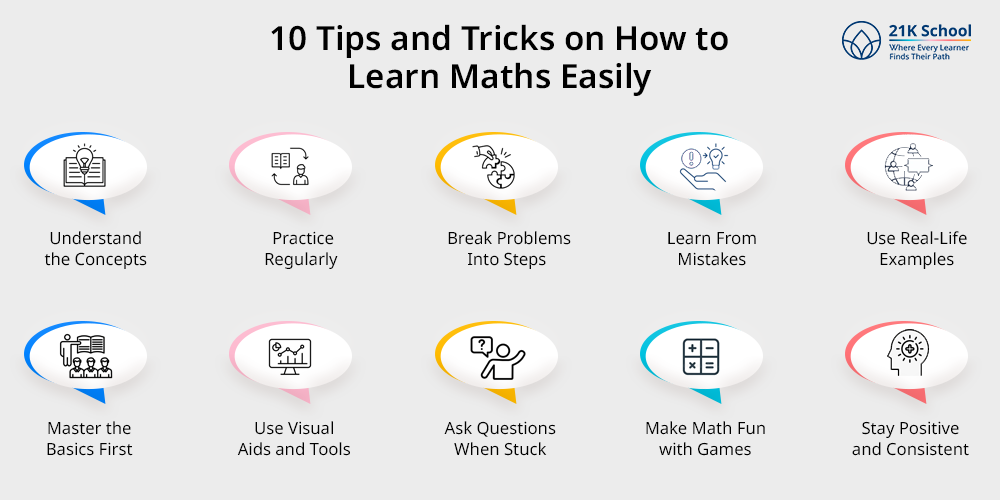
To learn math effectively, focus on learning concepts, practising, and seeking helpful online learning resources.
If you can master the basics, positively engage with problems, and keep an open mind when it comes to finding solutions, you will see a significant boost in your math problem-solving skills.
1. Understand the Concepts
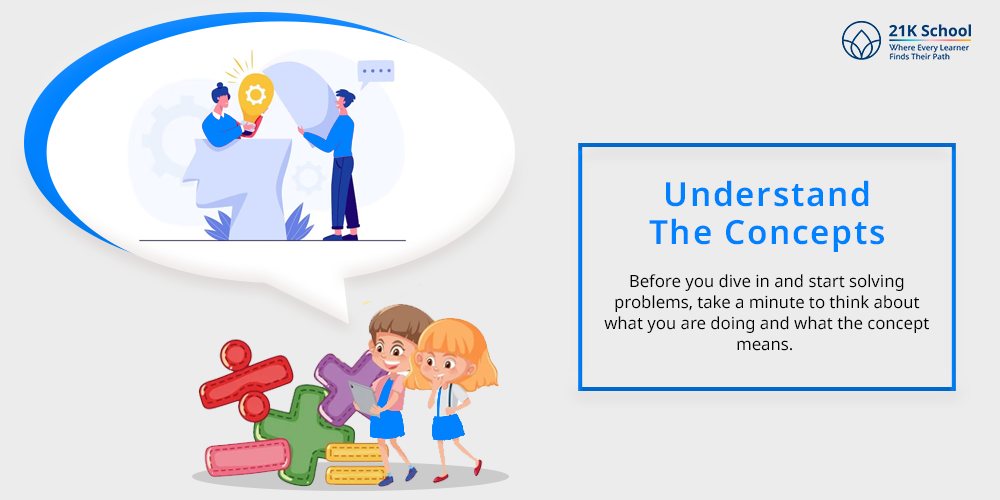
Before you dive in and start solving problems, take a minute to think about what you are doing and what the concept means.
You can’t just memorise formulas, and unless you know what the formulas are derived from and how they are constructed, what you have learned will not stay with you.
For example, don’t just memorise the formula for the area of a triangle; think about why or how they came up with that formula and understand its derivation.
When you understand the reasoning behind the formula, your problem-solving will be much easier.
2. Practice Regularly
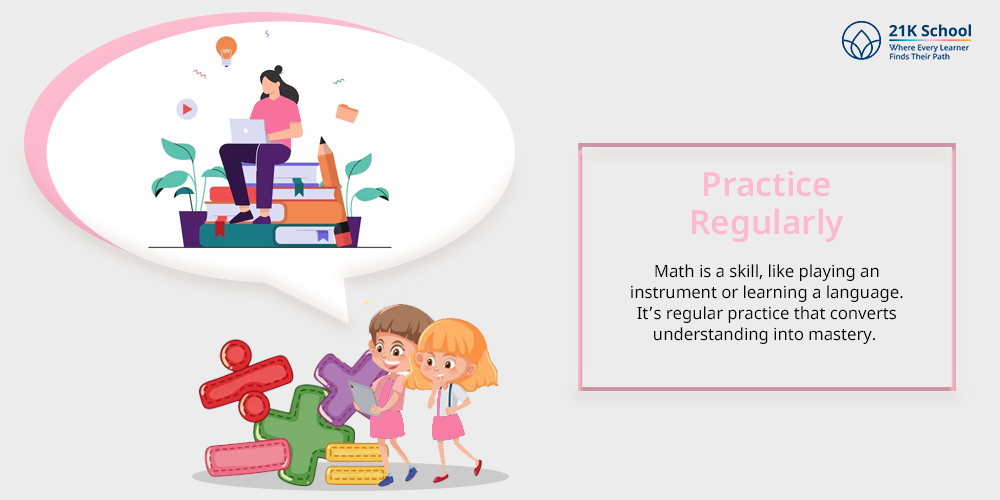
Math is a skill, like playing an instrument or learning a language. It’s regular practice that converts understanding into mastery.
Start with a few problems every day. Don’t just do the problems you already know; challenge yourself with new ones. As you become more confident, slowly increase the difficulty level.
Make a weekly math routine and have topics alternate each week. For example, one week work on algebra, the next week geometry, etc. Revisiting previously learned concepts will also help solidify them in your memory.
Consistency will program your brain to think logically, as well as solve problems more accurately and quickly.
3. Break Problems Into Steps
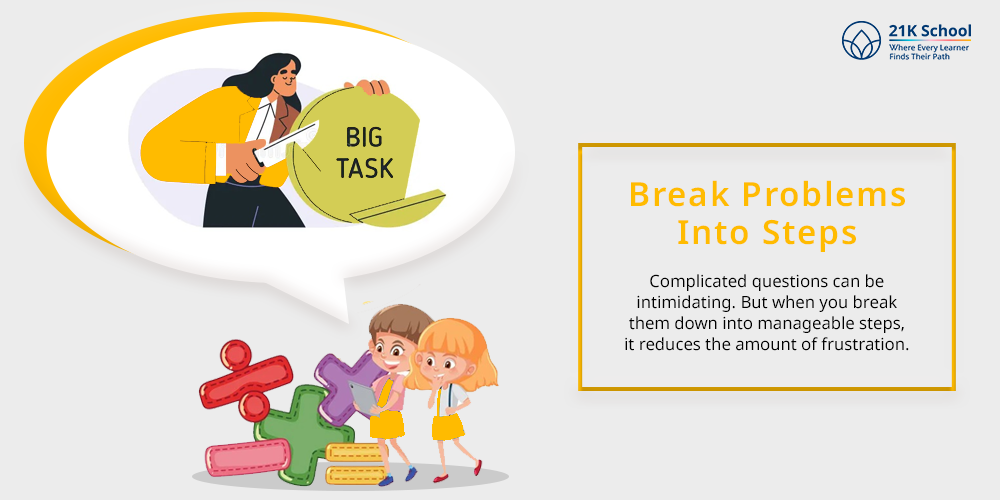
Complicated questions can be intimidating. But when you break them down into manageable steps, it reduces the amount of frustration.
Take a question about distance, speed, and time as an example. Identify any known variables first. Then, look for the appropriate formula. When everything is isolated, it is difficult to make careless errors.
This same principle can be helpful when checking your work. After you perform each step, you can go back and review your work to see where an error may have occurred.
Breaking down questions is especially useful for board exams and competitive tests, where accuracy is just as important as time.
4. Learn From Mistakes
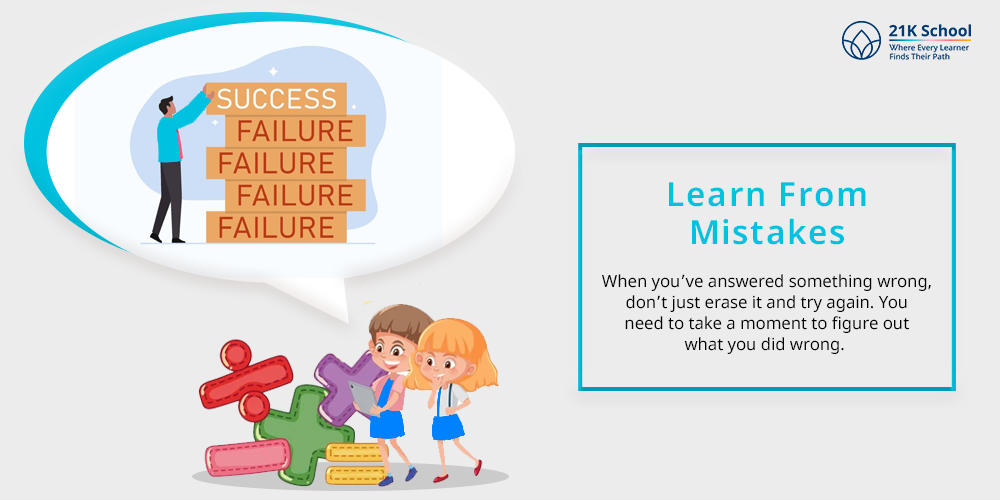
Mistakes are an integral part of the learning experience. They’re one of your best learning tools.
When you’ve answered something wrong, don’t just erase it and try again. You need to take a moment to figure out what you did wrong.
Did you miss a sign? Use the wrong formula? Misread the question?
You can also develop a “mistake notebook” where you keep track of the questions you answered incorrectly, along with notes about what went wrong and what the fix is.
You should look back at it regularly; this will keep you from repeating your mistakes, as well as reinforce what you learned.
5. Use Real-Life Examples
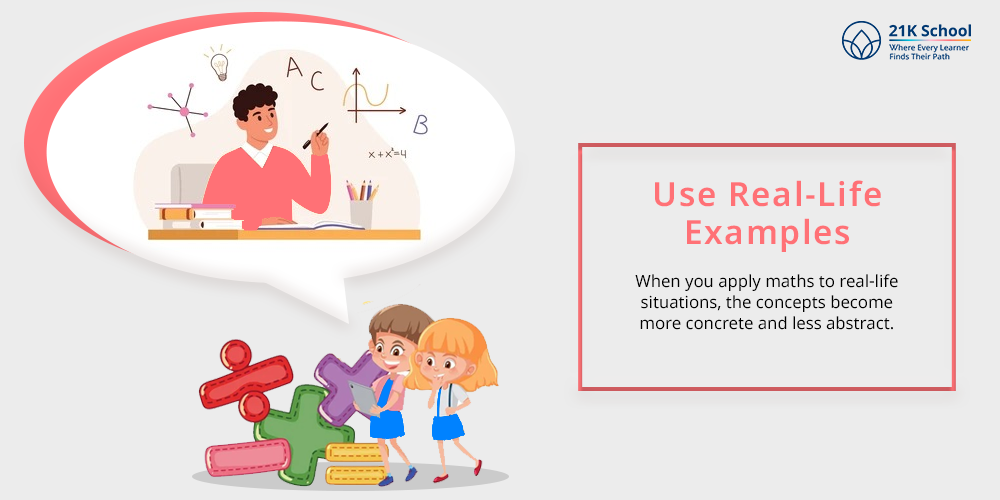
An excellent method to learn maths with ease is by making it relevant to life.
Do you need help understanding percentages? Try calculating discounts on your shopping. Are you trying to figure out ratios? Use a cooking recipe to calculate the proportions. Do you want to learn about converting time? Plan a travel schedule.
When you apply maths to real-life situations, the concepts become more concrete and less abstract. It also demonstrates how valuable maths is in daily life and helps with motivation.
6. Master the Basics First
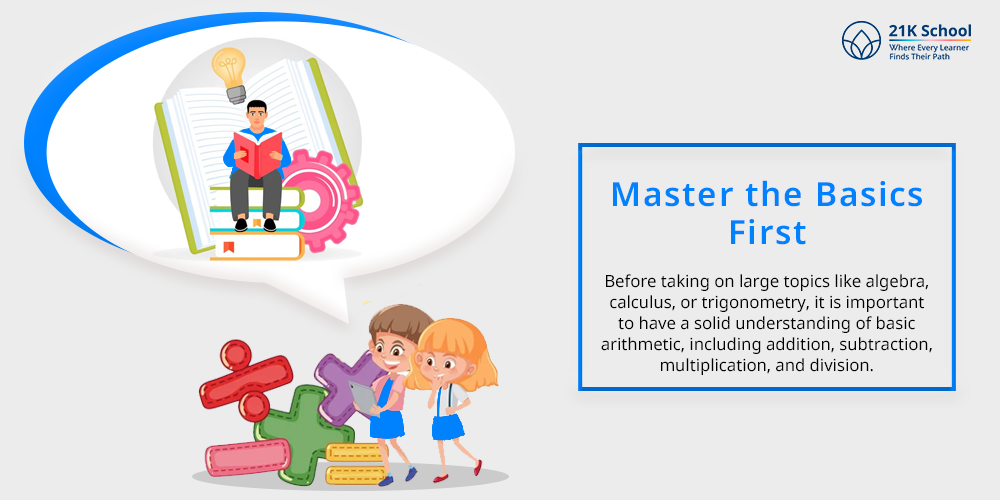
Before taking on large topics like algebra, calculus, or trigonometry, it is important to have a solid understanding of basic arithmetic, including addition, subtraction, multiplication, and division.
These basic operations will be the foundation for any greater concepts that you learn in mathematics.
If you struggle with basic numbers, it will be challenging for you to keep up when a problem gets complicated.
Flashcards, mental math, or math drills are a good way to improve these skills. After working on your basics, you will find higher-level problems to be far less daunting.
7. Use Visual Aids and Tools
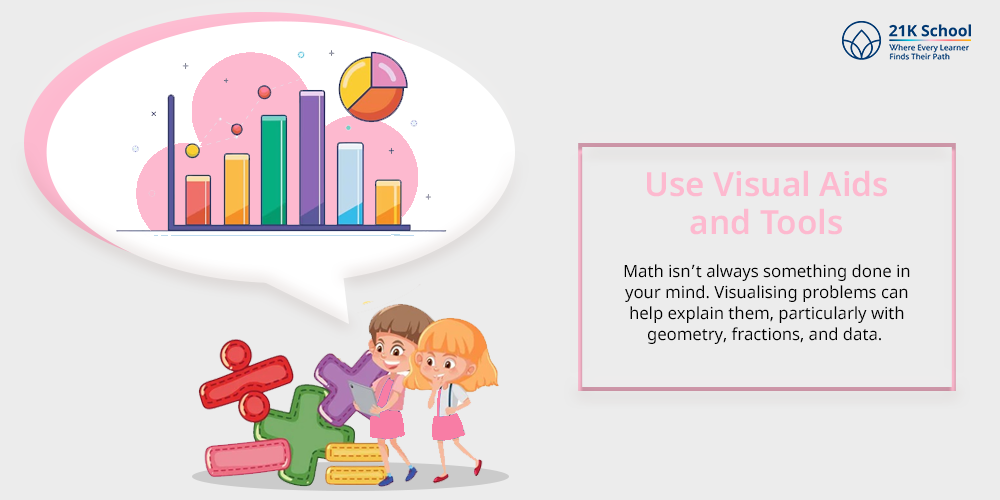
Math isn’t always something done in your mind. Visualising problems can help explain them, particularly with geometry, fractions, and data. Use:
- Pie charts
- Bar graphs
- Diagrams
- Number lines
- Math apps and tools
For instance, instead of trying to solve linear equations with a formula, using a graph can create a much clearer picture of it all.
Here are 10 fun and interactive math websites for kids.
8. Ask Questions When Stuck

Ask questions and clear doubts when they come up, no matter how small or silly they may seem.
You can ask your teacher, peers, a tutor, or an online forum. Sometimes, getting a new perspective gives clarity and helps towards finding a solution.
Quite often, just a little bit of explanation, clarification, or analogy to real life can change the way you view the entire problem.
9. Make Math Fun with Games
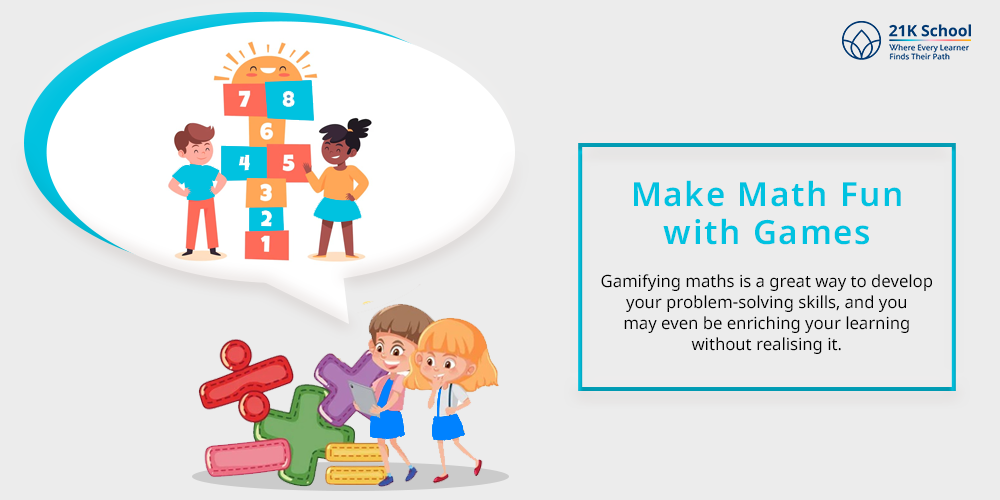
Gamifying maths is a great way to develop your problem-solving skills, and you may even be enriching your learning without realising it.
Some examples of games you can play include:
- Sudoku
- Tangrams
- Math-based card games
- Mobile apps like Prodigy or Mathletics
- Board games that involve strategy and numbers
For preschoolers just beginning their math journey, explore these 18 fun and engaging counting math activities that make learning numbers enjoyable through play.
These games are all geared to build your mental math, logical thinking, and pattern recognition skills. They can be particularly useful for young learners who find textbooks tedious.
Additionally, when you make maths fun, you can also reduce anxiety. The more relaxed the students are, the better they may tackle problems in the future with more confidence and curiosity.
Learn more about free math games for kids.
10. Stay Positive and Consistent
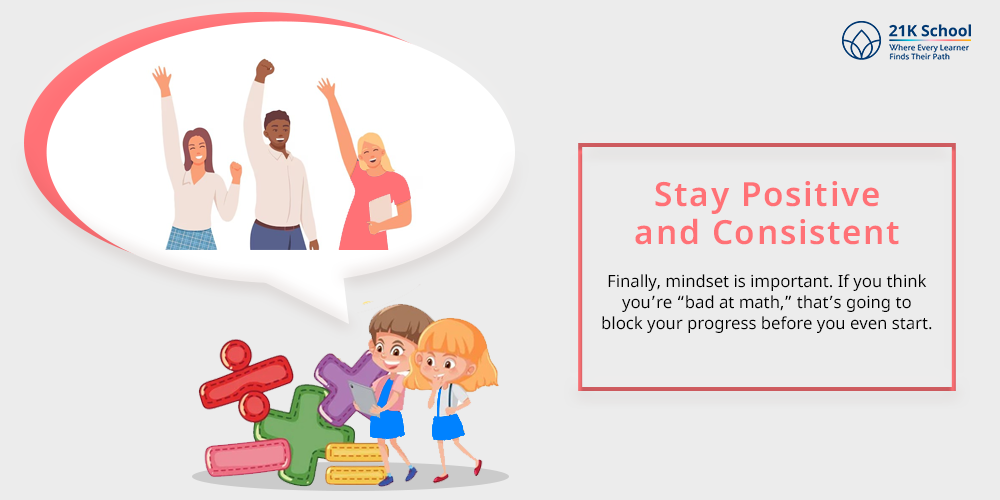
Finally, mindset is important. If you think you’re “bad at math,” that’s going to block your progress before you even start.
Instead, think of math as a skill that can be developed with effort and time. You can celebrate those little milestones, whether it is working through a difficult equation or finishing a worksheet on time.
Set achievable goals for yourself, monitor your progress, and keep yourself motivated. Even doing 20-30 minutes of focused math study per day can lead to an improvement you can see in a few weeks.
Consistency and accuracy are more important than speed. With a positive mindset and a commitment to making small, consistent efforts, you might surprise yourself at how far you can go.
Final Words
Mathematics is understandably a fearsome and challenging subject for many people. However, with the right strategies, practised effort and a positive learning environment, anyone can learn mathematics successfully.
Whatever part of maths you are trying to master, whether you are a student aiming to improve your maths scores or a parent supporting your child’s learning, these suggestions can be extremely beneficial.
Focus on understanding the concepts, planned routine practice and using maths in a real-life situation where possible.
Keep a small, consistent pace, stay curious and enjoy the journey, because learning maths can be simple, fun and very rewarding!


